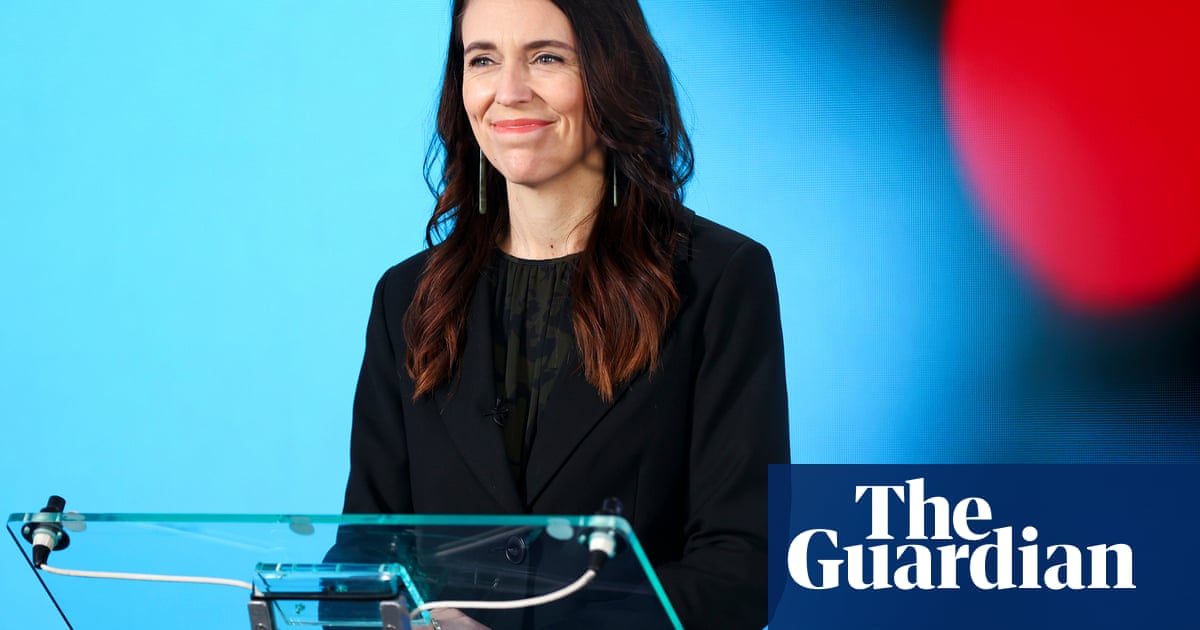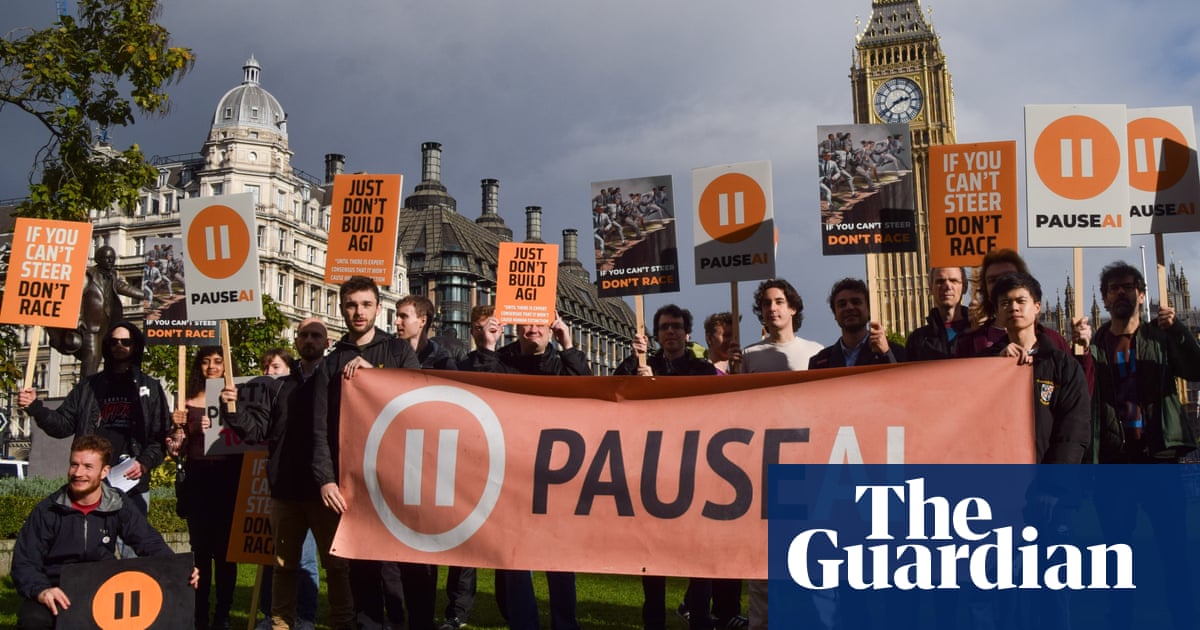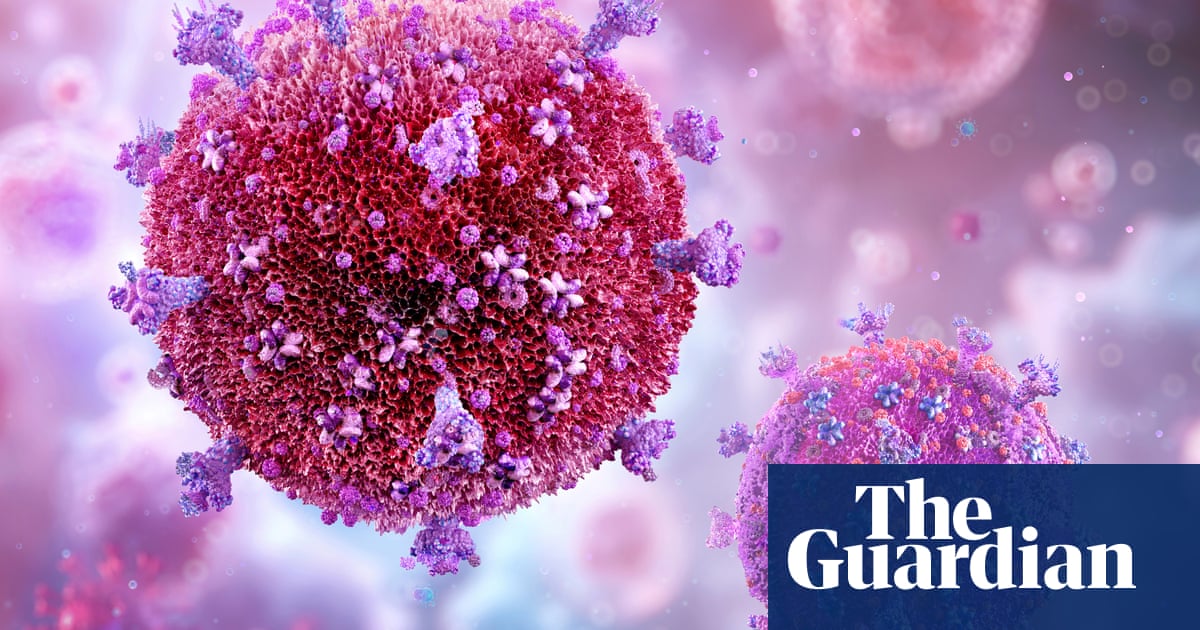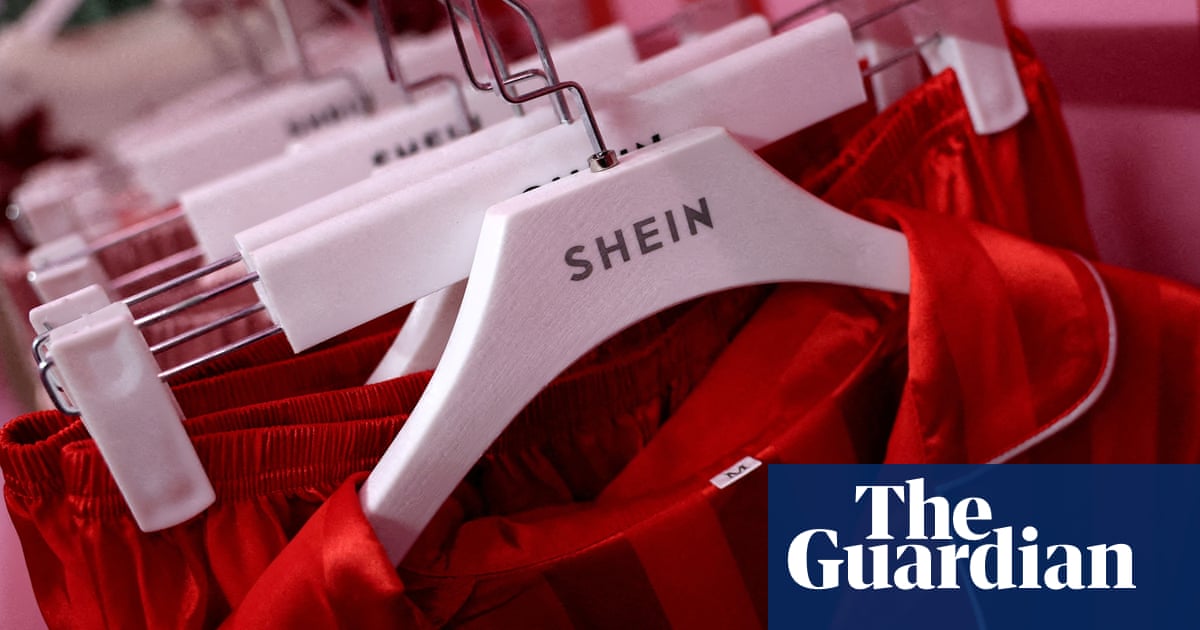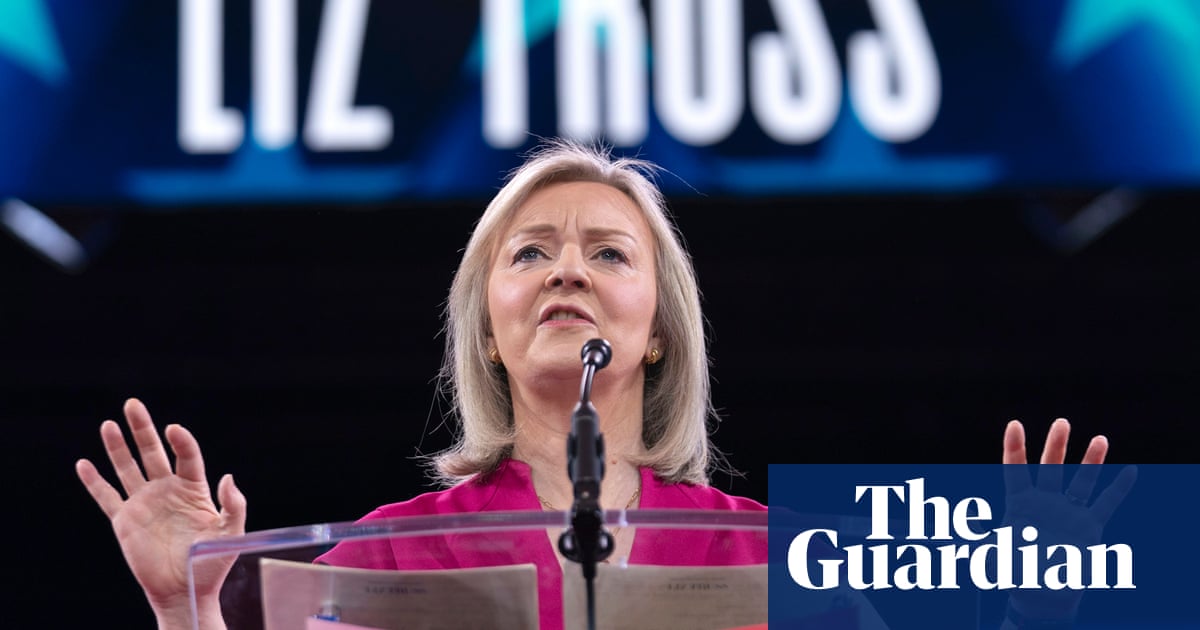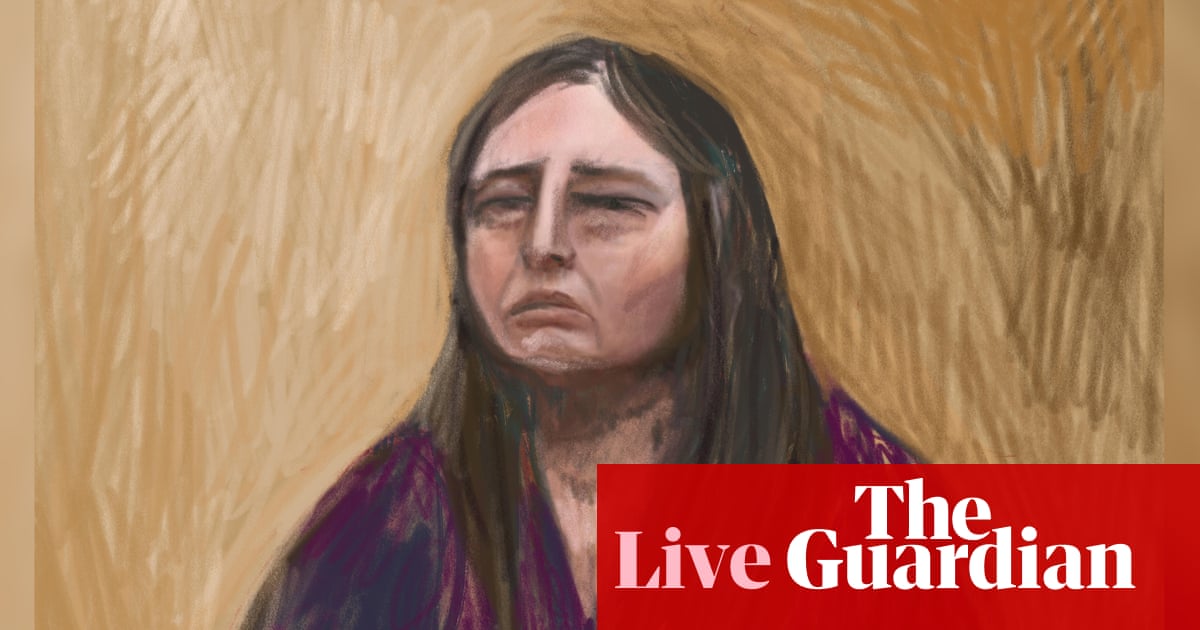In Kate Nash’s new single, released last week, the 37-year-old musician and actor has coined a new acronym, Germ: “girl, exclusionary, regressive, misogynist”. In the lyrics, she states: “You’re not radical … You’re not rad at all,” and that “using feminism to erase the rights of others and endanger them is inherently un-feminist”. It arose from Nash seeing “trans-exclusionary radical feminist” – the contentious term “terf” – as something of a misnomer. Those who espouse gender-critical views are, in her opinion, neither radical nor feminist.
The song was written in response to last month’s supreme court ruling that the legal definition of “woman” ought to be based on biological sex (a judgement that doctors at the British Medical Association have called “scientifically illiterate”). “I have a lot of trans people in my life that I care about,” Nash tells me on the day the track is released. “This feminist-trans ‘debate’ – it’s not a debate to me. A friend of mine was the victim of a hate crime last year. I took the ruling very personally.” She says the time felt right for her to speak out. “The LGBTQIA+ community supports women so much, and they have been there for me in my life and career. That’s why I think cis women really owe it to trans people to step up at this moment. This song is for that community.”
Within hours of the song going live, Nash was trending on X. On the one hand, Nash was praised by LGBTQ+ advocates and allies for showing support for trans people at a time when their rights are being eroded. “A lot of the queer community have been really grateful,” says Nash. “I’ve received some beautiful messages about what it means, when there’s so much uncertainty and fear and a loss of confidence for a lot of trans people. That’s been really moving.”
On the other hand, gender-critical voices online suggested that Nash was “enabling abusers” by calling for trans women to be admitted into single-sex spaces. Nash finds the accusation “absurd”. Critiquing different ideologies is important, she says, “but there’s a difference between critical thinking and what’s happening in this debate. I’m really open to nuanced conversations. I was preparing myself for this really amazing argument that stitches me up, a big ‘gotcha’ moment’. But all the insults are calling me old, a bint, a slag, a has-been. I’m shocked at how juvenile and misogynistic the comments are.”
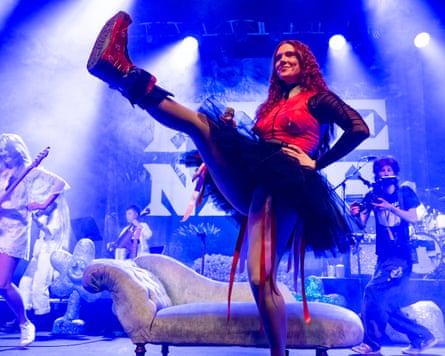
“Germ”, Nash is aware, is another insult now added into the mix. “I’m taking my artistic liberty there as a musician – I can be highbrow and I can be lowbrow. But I also do think it’s important for feminists to voice that transphobia is not feminist, so I stand by it.” She is ready for the inevitable backlash. “I’ve been trolled since I was 18. Bring it on. I’m OK with whatever insults people want to throw at me – I can handle it. It’s not going to be as difficult as what a trans person is having to go through at this moment.” She hopes the song encourages others to speak up despite it being such a divisive subject. “It felt like a scary thing to voice, because it’s this hot topic, but as a musician you can make something that’s quite fun and catchy and a little bit empowering.”
Nash has long been an advocate for women’s rights, calling herself a feminist in interviews since she started releasing witty, acerbic songs in the mid-2000s, before Taylor Swift and Beyoncé made the term a pop cultural concern. She is worried that the label has been hijacked by a gender-critical group who are “very vocal and very organised”, and that resources would be better spent finding solutions to more pressing problems faced by women, such as sexual violence and femicide, which occur overwhelmingly at the hands of men.
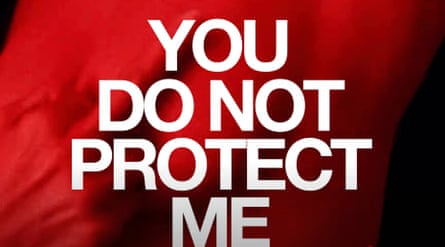
“Taking away the rights of vulnerable people who are not a threat is obviously the wrong thing to be doing,” she says. “I’m not willing to trample on people that have less autonomy over their bodies and less safety in the world than me in order to protect myself. I do not think cis women are more important or better than trans people.”
Nash also made headlines earlier in the year by announcing she was selling photos on OnlyFans to help subsidise her tour. This was done in part to make a serious point about the ways the music industry is failing artists, especially those from working-class backgrounds: “Artists can’t make money from touring and they can’t make money from recorded music.” Nash explains that touring comes with a whole raft of costs, such as renting a tour bus, paying for a band and crew, food, petrol, hotels. Streaming was “built unethically from the start”, she says, with major labels and streaming services defining the terms and conditions – not artists – and not updating pre-streaming contracts to reflect the new reality. “Who you listen to isn’t where your money directly goes, and I don’t think that’s right. The way the music industry has been structured, historically, has been exploiting artists. And we’ve been exploited yet again.”
Nash has personal experience of the shadier side of the business. Her former manager misappropriated large amounts of her money during the mid-2010s. (They reached an out-of-court settlement.) During a lengthy legal battle, Nash had to move back in with her parents. “It was a really difficult thing for me to experience,” she says. “But overall I think it’s informed me, and I feel capable of speaking on issues like this now. I feel really empathetic to artists – it’s made me aware of how toxic the environment is.”
The decision to sell her pictures online drew criticism, with people accusing Nash of being a bad influence on young girls. “I’m a fantastic influence for young girls,” she counters. “I’ve fought my entire career for young women – representation is extremely important to me.” The photos were also a way of taking control of her sexuality. As an actor on Netflix series Glow, “I’ve been naked on TV,” she says. “I’ve simulated a threesome. I use my body all the time on stage to move, to sing, to connect with an audience. But if I’m completely in control of it, that’s ‘wrong’. Is it wrong? Our bodies are so politicised, and the world has an opinion about how to prevent us from being able to make choices about them.”
Last weekend, Nash premiered Germ at the Mighty Hoopla festival along with the London Philharmonic Orchestra. Later this month she will headline Glastonbury’s Left Field stage on the Saturday night. She is excited to play the song in front of an audience: “I think that will be quite a punk, exciting moment in the set.”
Nash is undeterred by the internet noise the song has caused. “I mean, sure, attack me online, but I’m still right,” she says. “I wanted to leave a record in musical history of a feminist who is outspoken as a cis woman: this is my opinion, and I don’t want the loudest cultural voice in the room to be anti-trans. That is not what feminism has taught me.”

 1 day ago
23
1 day ago
23
